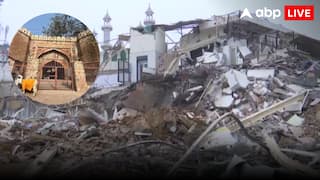Govt Exploring PLI For Train Component Manufacturers To Attract Foreign Firms: Report
So far the government has announced PLI programmes in 14 key sectors, including auto components, automobile, aviation, chemicals, and electronic systems among others

The Centre is exploring a production-linked incentive (PLI) scheme for train component manufacturers to attract foreign manufacturing firms and reduce dependency on imports. The government's Production Linked Incentive (PLI) scheme is a type of performance-linked incentive that rewards firms for incremental sales from products manufactured in domestic units. Its objectives are to increase production and lower imports. So far the government has announced PLI programmes in 14 key sectors, including auto components, automobile, aviation, chemicals, and electronic systems among others.
Now, the government wants to invite a consultancy firm to prepare a PLI scheme for train component makers, reported The Economic Times citing people aware of the matter. The report also said that the Centre will select a consultancy firm this month via a bidding process. The firm will prepare a list of parts used in making engines and coaches that are largely imported.
In India, railways currently operates with 28 different types of passenger coaches. However, as per the report, the government plans to streamline this variety to just two main types: Linke Hofmann Busch (LHB) and Vande Bharat coaches. The LHB coaches, introduced in 1999, consist of around 1.5 per cent imported components, while Vande Bharat coaches have roughly 15 per cent imported components.
Also Read: Intel Drops $5.4-Billion Acquisition Of Israeli Chipmaker Tower: Report
An official told ET that the government is placing emphasis on evaluating the export potential of Vande Bharat trains and strategies to enhance the use of locally manufactured components within the train assembly. The objective is to improve cost-effectiveness by boosting local production. The official said that the new PLI programme will incentivise new manufacturing units, or expand existing ones to supply coach and engine parts that are otherwise imported.
Even though there's consistent demand from the railways, certain vital rolling stock components like wheels and axles are still imported, the report noted.
Recently, a tender for 33,000 LHB wheels, was given to TZ (Taizhong) Hong Kong International Ltd in April. It imports black forged axles from Railteco, China, and having them machined in India, Bonatrans India also received a contract. To reduce some of this reliance on imports, the railways have also awarded a procurement order for 1.54 million locally produced forged wheels.
As per another official quoted in the report, anticipating with a substantial surge in demand, the country would see around 4,500 Vande Bharat trains operational by 2047, leading to a manifold increase in the requirement for Vande Bharat and LHB components within the country.





































